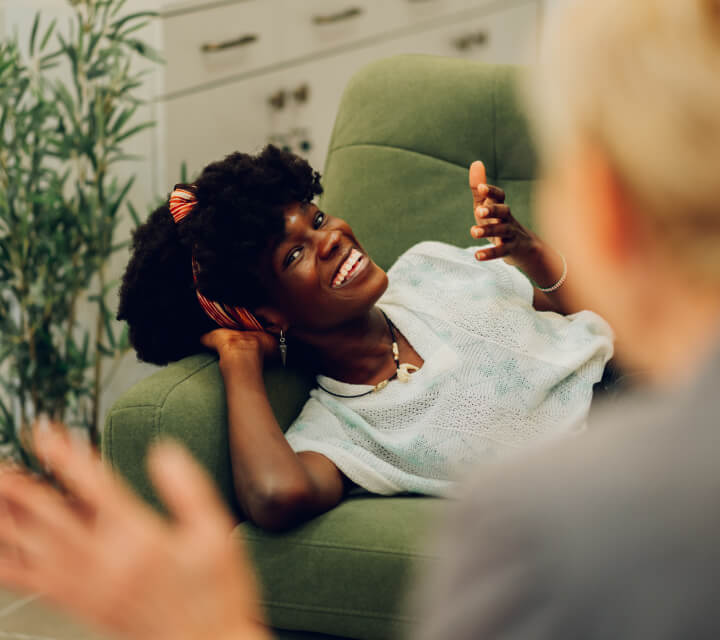Fears and Phobia Therapy in Toronto
Do you feel an overwhelming fear of specific objects or situations? Does your fear seem unreasonable to others, but very real to you? Are you avoiding certain places or activities because of your phobia?
If this sounds like you, then you’ve come to the right place.

What is a Phobia?
A phobia is a kind of anxiety disorder that makes you very afraid of something or a situation, even if it doesn’t really make sense.
Phobias might seem to appear suddenly, but they often start because of increased general anxiety or a scary event. If not treated, they can make life really hard and limit what you can do.
How Many Different Phobias Are There?
Phobias, and the fear or anxiety they cause, vary greatly from person to person, so there’s no definitive list of specific fears. But experts generally classify phobias into five main categories:
- Animals – this includes fears of alligators, dogs, snakes.
- Natural Environment – this includes fears related to heights, storms, and water.
- Blood, Medical Procedures, Injuries – this includes fear of needles, sharp objects, and pain.
- Situations – this includes fears of activities like driving, flying, and being in enclosed spaces.
- Other – this includes less common fears, such as fear of children, clowns, or choking.
Common Phobias
Animals
- Arachnophobia (fear of spiders)
- Cynophobia (fear of dogs)
- Entomophobia (fear of insects)
- Ophidiophobia (fear of snakes)
Natural Environment
- Acrophobia (fear of heights)
- Agoraphobia (fear of public spaces)
- Aquaphobia (fear of water)
- Astrophobia (fear of thunder and lightning)
Blood, Medical Procedures, Injuries
- Algophobia (fear of pain)
- Dentophobia (fear of dentists)
- Hemophobia (fear of blood)
- Trypanophobia (fear of needles or injections)
- Mysophobia (fear of germs or dirt)
Situations
- Aerophobia (fear of flying)
- Amaxophobia (fear of driving)
- Claustrophobia (fear of enclosed spaces)
- Nyctophobia (fear of the dark)
What causes phobias to develop?
Our brains remember things that can hurt us. For example, if you were chased by a dog when you were little, your brain remembers the fear and tells you to stay away from dogs.
Phobias happen when the brain brings up scary memories at the wrong times. This makes the body feel very scared and stressed, even when there’s no real danger.
There isn’t one single reason why phobias start. Many things can cause them, and it can be hard to know exactly when they began.
- Family history (genetics)
- Traumatic experiences
- A very upsetting or frightening experience
- Things you learned when you were young
Did you know?
Phobias Have Evolutionary Origins Some phobias, like the fear of snakes (ophidiophobia), may have evolutionary origins. Studies suggest that these animals provoke a strong disgust response because they have historically been associated with danger and disease.
Common Phobia Symptoms
- Sweating: Excessive sweating when faced with the phobic object or situation.
- Trembling or Shaking: Uncontrollable shaking or trembling due to fear.
- Shortness of Breath: Difficulty breathing or a feeling of being choked.
- Rapid Heartbeat: Heart palpitations or an accelerated heart rate.
- Chest Pain or Tightness: Feeling tightness in the chest or actual pain.
- Dizziness or Lightheadedness: Feeling dizzy or lightheaded, sometimes leading to fainting.
- Nausea: Feeling sick to the stomach or having an upset stomach.
- Dry Mouth: Having a dry mouth and difficulty speaking.
- Intense Anxiety or Panic: Feeling overwhelming anxiety or panic when exposed to the phobic stimulus.
- Avoidance: Going to great lengths to avoid the phobic object or situation.
- Irrational Fear: Recognizing that the fear is excessive or unreasonable but feeling powerless to control it.
- Loss of Control: Feeling out of control when confronted with fear.
- Detached Feeling: Feeling detached from oneself or the surroundings (depersonalization or derealization)
These symptoms can significantly interfere with daily life, making it challenging to function normally. If you or someone you know is experiencing these symptoms, seeking professional help can be beneficial.
Fears and Phobias Treatment Options
- Cognitive Behaviour Therapy (CBT) for Phobias
- Exposure Therapy for Phobias
- Mindfulness Interventions
Phobia Therapy Treatments at Get Reconnected Psychotherapy Services
At Get Reconnected Psychotherapy Services, we offer a unique approach to treating fears and phobias. We focus on the mind-body connection in our sessions, helping you change your relationship with your fears.
We understand that each person experiences fear differently, so we customize our approach to provide the best possible care for each individual.
- Confront and manage your fears in a safe and supportive environment
- Feel more relaxed and less anxious when facing your phobias
- Identify the root causes of your phobias and what triggers them
- Build confidence and resilience
- Change negative thought patterns to reduce fear
- Calm your mind and slow down racing thoughts
- Re-engage in activities you enjoy without being held back by fear
- When did you first start experiencing this fear?
- How does this fear affect your daily life?
- How do you currently cope with your fear?
Our 8-step Therapy Process
01 Initial Assessment
02 Goal Setting
03 Evidence-Based Approaches
04 Consistent Sessions
We offer flexible scheduling for regular therapy sessions, whether weekly or bi-weely, based on your availability and requirements.
05 Active Participation
06 Relaxation Techniques
07 Exposure Techniques
08 Ongoing Evaluation
We regularly assess your progress and adjust our approach as needed to ensure effective anxiety management tailored to your evolving needs. This ongoing evaluation helps us track improvements and refine our strategies.
Our Phobia Therapist







